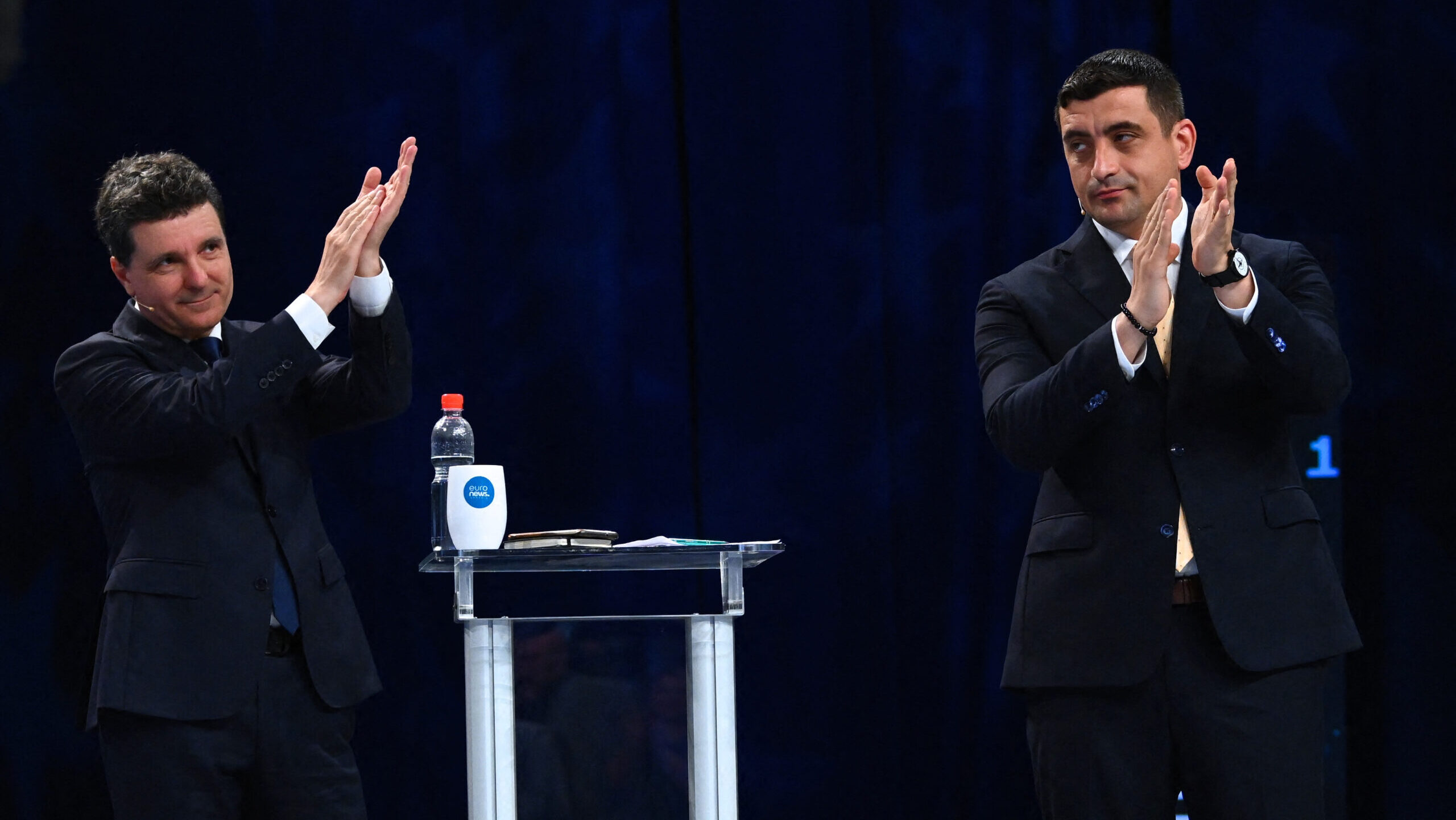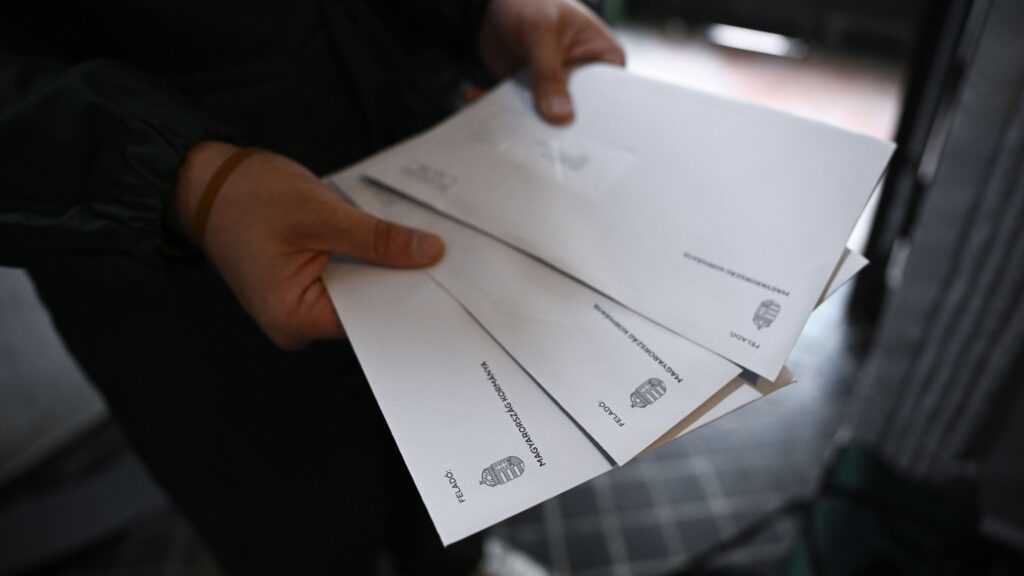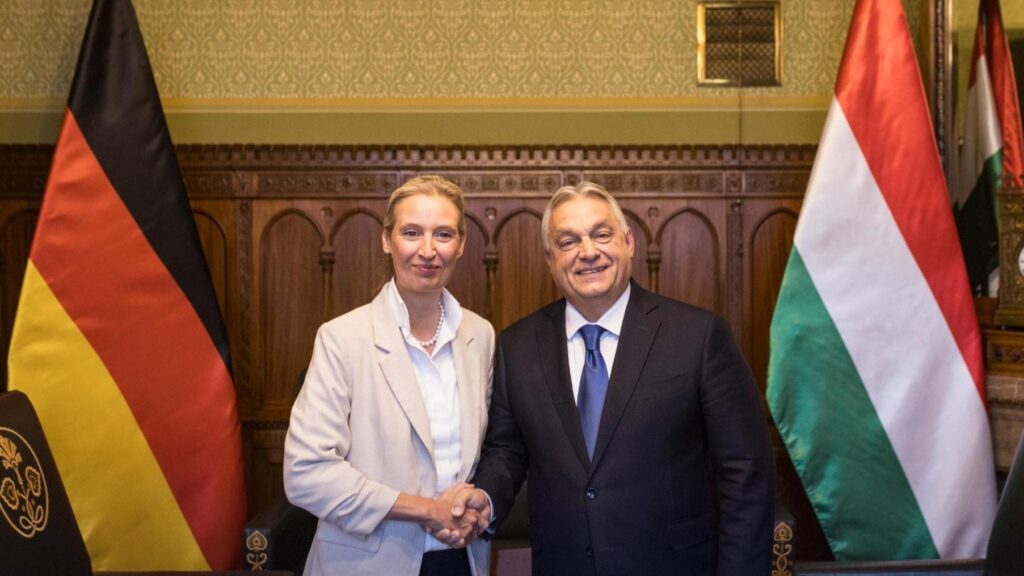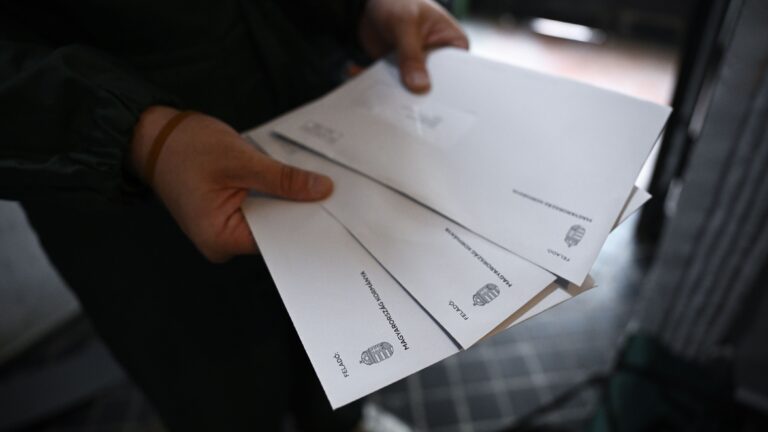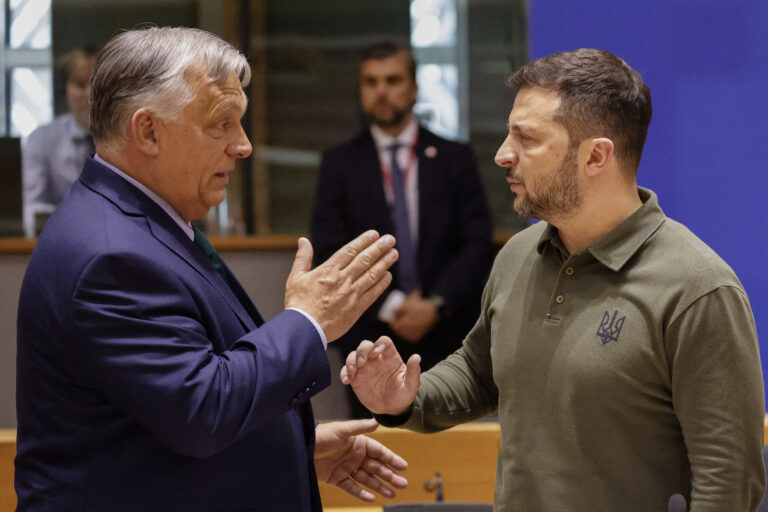George Simion and Nicușor Dan will face off in the second round of Romania’s presidential election on 18 May. The latest polls show the two anti-establishment candidates running neck and neck in what is arguably the most controversial elections in the country’s history since the regime change of the 1990s.
Simion, candidate of the Alliance for the Unity of Romania (AUR), won the first round by a landslide, securing over 40 per cent of the vote. Bucharest Mayor Nicușor Dan came in second after a tight race against the governing coalition’s joint candidate, Crin Antonescu.
The first-round result dealt a major blow to Romania’s establishment parties—an outcome that had been widely anticipated, particularly in light of the controversy surrounding the annulment of the original presidential election in December 2024. At the time, right-wing ultranationalist and political outsider Călin Georgescu had won with 22 per cent of the vote, but the Constitutional Court annulled the result, citing alleged Russian interference on Georgescu’s part—a claim that has yet to be conclusively proven. The incident significantly boosted support for George Simion—who had placed fourth in the original first round—as he shared many ideological positions with Georgescu. Moreover, AUR openly supported Georgescu’s attempt to reinstate his candidacy, although the effort ultimately failed.
The Two Faces of George Simion
Simion is arguably one of the hottest figures currently on the European right, although one of the most controversial ones also. He describes himself as a ‘Eurorealist’, viewing European institutions with scepticism, rejecting further centralization of the integration, and advocating for the repatriation of powers to sovereign member states. He is critical of military support for Ukraine and has been declared persona non grata in Kyiv for ‘systematic anti-Ukrainian activities’. Simion firmly supports strict border protection, opposes the EU’s migration policies, promotes traditional Christian values, and rejects same-sex marriage.
Many on the European right, including Marine Le Pen, Matteo Salvini, and Herbert Kickl, have endorsed Simion, as has AUR’s European political family, the European Conservatives and Reformists (ECR), led by Italian Prime Minister Giorgia Meloni and Polish opposition leader and former Prime Minister Mateusz Morawiecki.
‘Simion has a history of anti-Hungarian rhetoric and actions’
However, Simion also has a history of anti-Hungarian rhetoric and actions, including a 2019 clash between ultranationalist Romanian groups and ethnic Hungarians at a military cemetery in Valea Uzului (Úzvölgye). Simion has advocated for restricting the language rights of the Hungarian minority in Romania and for the abolition of Hungarian-language education. He has labelled the Democratic Alliance of Hungarians in Romania (UDMR)—an ethnic Hungarian party currently in the governing coalition—as a ‘hideous, chauvinistic creature’, and has asserted that there is no place for ethnic-based political parties in the country.
According to the 2021 census, there are around one million ethnic Hungarians living in Romania, most of them in the northwestern region of Transylvania. They maintain a strong cultural and linguistic identity. Hungarian is widely spoken in areas with significant Hungarian populations, and there are formal provisions for education in the Hungarian language.
This creates a strange and tense dynamic with regard to Hungarian Prime Minister Viktor Orbán’s position on Simion. The two share remarkably similar ideological views on many key issues—Simion has even described himself as the ‘Romanian Viktor Orbán’—yet his anti-Hungarian stance makes any potential cooperation appear both risky and contradictory.
Orbán’s Remarks Trigger Backlash in Transylvania
This tension was evident recently following one of Orbán’s ambiguous statements, which sparked domestic uproar. On 9 May, the Hungarian Prime Minister responded to the Romanian presidential debate, in which, according to Orbán, Hungary was mentioned in the context of Christianity. During the debate, Simion had declared that the time had come for a Europe of nations, a Christian Europe, and citizens would fight for their right to be European citizens. Orbán remarked that he fully agreed with this view.
‘We share a historical community of fate with the Romanian people. We do not interfere in the ongoing presidential contest, but from here, the symbolic heart of the Carpathian Basin, we wish to convey this message to the people of Romania and its future president: we stand on the foundation of unity and cooperation, and therefore we will not support any form of isolation or retaliation against Romania or its leadership. In the fight for sovereignty, we must be able to count on one another,’ Orbán stated. Many, including ethnic Hungarians in Romania, interpreted his words as a clear endorsement of Simion.
Orbán Viktor on X (formerly Twitter): "Romania's elections are none of our business. However, from the heart of the Carpathian Basin, we assure the Romanian people and their future president: Hungary stands for unity, not division. We will not support any form of political isolation against Romania or its leaders.... pic.twitter.com/fAwWAUl4Ep / X"
Romania's elections are none of our business. However, from the heart of the Carpathian Basin, we assure the Romanian people and their future president: Hungary stands for unity, not division. We will not support any form of political isolation against Romania or its leaders.... pic.twitter.com/fAwWAUl4Ep
The following day, Orbán called Hunor Kelemen, President of UDMR, and reaffirmed that the Hungarian government regards UDMR’s position as of key importance. UDMR has endorsed Nicușor Dan and considers a Simion presidency a threat to the Hungarian community. Orbán reiterated that ‘in matters of national policy, the interests of the Hungarian community in Transylvania are the guiding principle.’ He added that the government had no intention of influencing the Romanian presidential election. ‘Together with Romania’s current and future leaders, we are working to advance the livelihood and preservation of the Hungarian community in Transylvania,’ he emphasized.
Orbán Viktor
Ma délután telefonon egyeztettem Kelemen Hunorral, az RMDSZ elnökével. Egyértelművé tettem: Magyarországról semmilyen módon nem kívánjuk befolyásolni a romániai elnökválasztást. A magyar kormány...
The Kingmakers of the Presidential Race
Meanwhile, Simion has softened his rhetoric regarding minorities, particularly Hungarians, as they could become kingmakers in the second round. According to Atlas Intel—one of the world’s most accurate pollsters—Dan has closed what was once a nearly 20-point gap, now leading by 0.9 percentage points with 48.7 per cent to Simion’s 47.8. A poll released by IRSOP on 15 May also shows Dan ahead, with 52 per cent of the vote. However, a CURS poll predicts the opposite, placing Simion at 52 per cent. According to Sociopol, Simion’s lead is even greater, at 53 per cent.
One thing is certain: the race will be extremely close. Two electoral groups could tip the balance—the Hungarian community in Transylvania, as mentioned above, and the Romanian diaspora. According to Atlas Intel, Simion is favoured among the diaspora (52.3 per cent), while Dan leads in Transylvania (55.2 per cent).
The diaspora vote could prove decisive. Between four and five million Romanians live abroad in Europe—one of the largest diasporas—with the largest communities residing in Italy (over one million), Germany (around one million), and Spain (more than 630,000). The diaspora plays a significant role in Romania’s political life: in the first round, they cast more than 960,000 votes, 60.8 per cent of which went to Simion, and 25.6 per cent to Dan. Although Simion dominated among the diaspora, Dan also owes his second-place finish in large part to their support.
‘The Hungarian community in Romania could prove decisive for Dan’
Diaspora voters tend to oppose establishment parties such as the Social Democratic Party (PSD) and the National Liberal Party (PNL), blaming the system and the limited opportunities it offered as reasons for leaving the country. This explains Simion’s popularity among them: he devotes considerable attention to their needs and to the housing and livelihood crises that often prompt emigration.
By 16 May, around 160,000 diaspora voters had already cast their ballots for the second round. Should turnout remain as high as in the first round, it could tip the balance in Simion’s favour.
Likewise, the Hungarian community in Romania could prove decisive for Dan. In a public statement, UDMR President Hunor Kelemen urged ethnic Hungarians to support Dan, emphasizing that Simion is ‘anti-Hungarian with his entire being’. While acknowledging some uncertainty regarding Dan’s presidency, he described him as the safer and more responsible choice for both Romania and the Hungarian minority. Voting patterns from Hungarian-majority counties suggest that between 7 and 17 per cent of ethnic Hungarians voted for Dan in the first round, while many supported Antonescu instead. Kelemen’s endorsement could significantly increase Dan’s support in the runoff. Antonescu and PSD have not endorsed any candidate for the second round, while PNL backs Dan.
The key question for the Hungarian community will be turnout. In the first round, voter participation in Hungarian-majority counties was significantly lower than the national average of 53.19 per cent: 36.41 per cent in Covasna (Kovászna), 26.98 per cent in Harghita (Hargita), and 25.26 per cent in Mureș (Maros). Should this trend persist, Simion’s chances of winning will be significantly strengthened.
Related articles:

